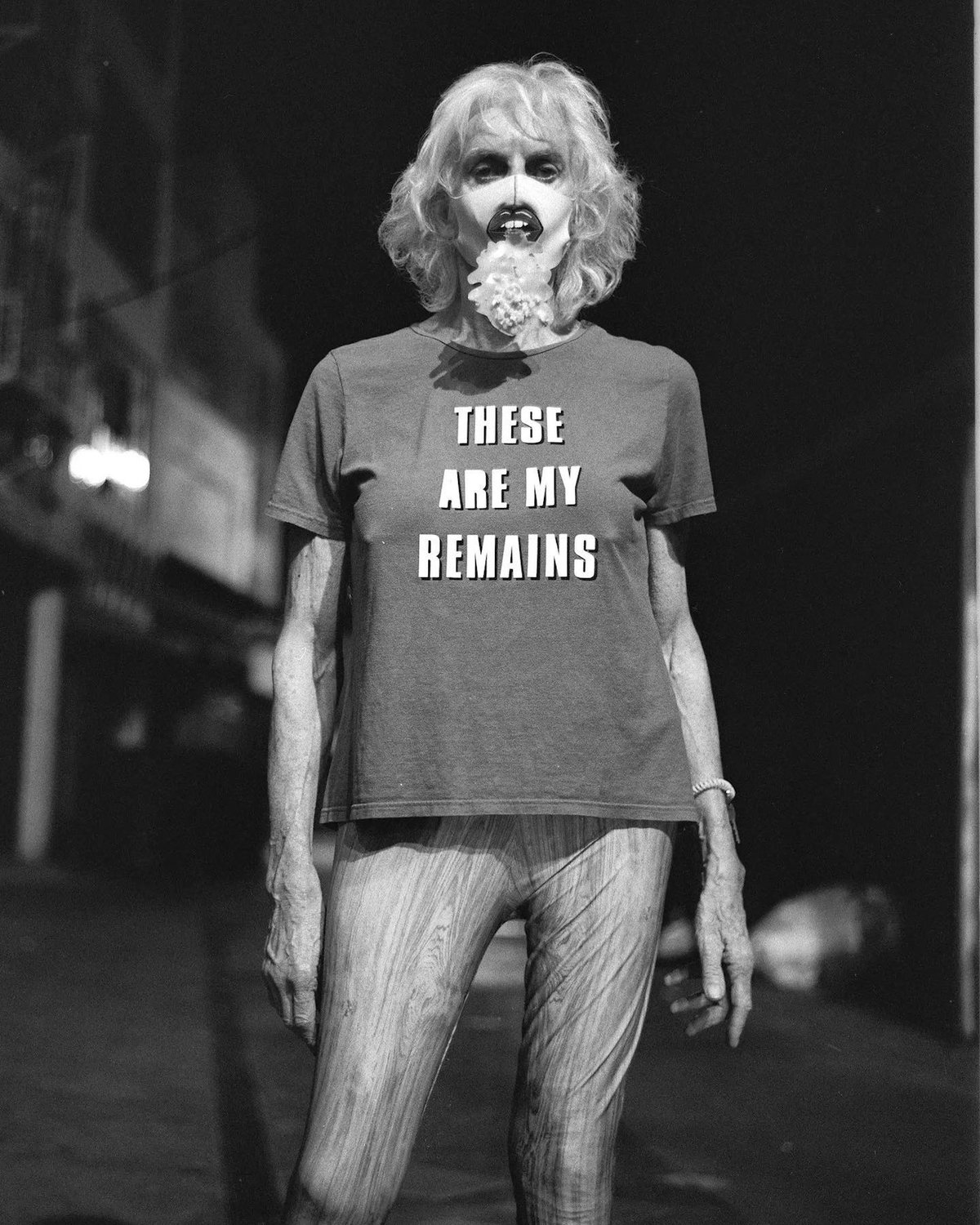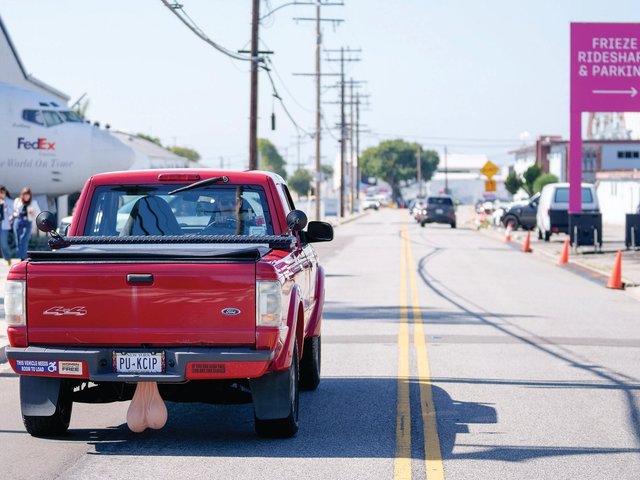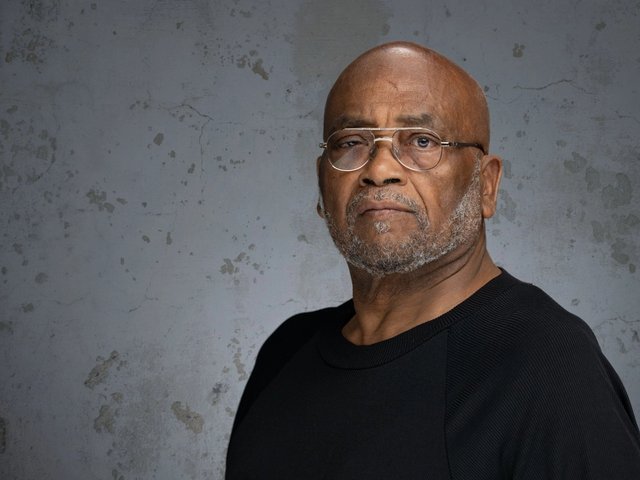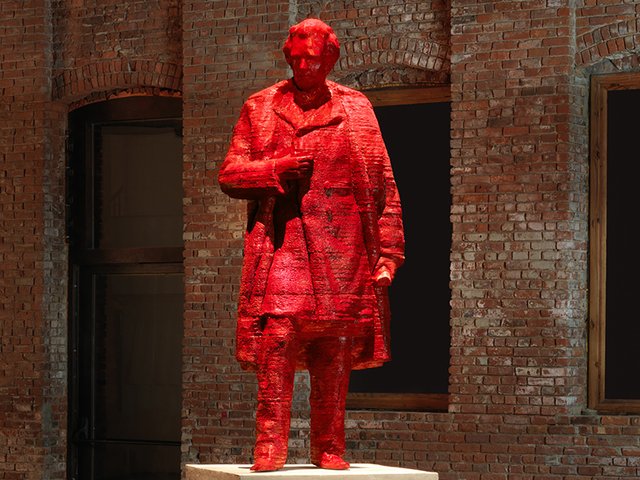The conceptual art trailblazer Philippa “Pippa” Venus Garner died on 30 December in Los Angeles from complications of lymphocytic lekeumia at age 82, according to an Instagram post from her official account.
Her death was confirmed by Christopher Schwartz of Stars Gallery, the Los Angeles venue representing Garner. The gallery opened a two-part solo show of Garner's work in November, Misc. Pippa, which remains on view until 18 January; the New York portion of the show, at Matthew Brown Gallery, is on view until 25 January.
The doyene of in-betweenness will be remembered for her sardonic commentary on American consumerism and witty visual challenges to the mundane. The statement written by friends of the artist to announce her death reads in part: “She wanted a trans president, universal healthcare, the end of testosterone toxicity overload and pet-troll-eum, hormones for all, lusty living to the very end.”
Garner’s work, which ranged in medium from bracing drawings to cheeky sculptural inventions and outright engineering projects, cast an irreverent gaze upon the gender normativity and marketing ethos of her cultural milieu. Born in 1942 in Evanston, Illinois, Garner grew up with a father who worked in advertising for a women’s magazine, gleaning inspiration from their trips to print shops during her childhood.
After a turn working on an assembly line in Detroit, Garner studied industrial design at the ArtCenter College of Design in California in an attempt to avoid being drafted into the Vietnam War. Her attempts were in vain, and she spent over a year as a combat artist documenting action on the ground. Garner openly discussed her exposure to Agent Orange, which could have played a role in her eventual diagnosis of leukemia. She also lost her sight to glaucoma at the end of her life.
After her deployment, Garner returned to ArtCenter, where she cemented her reputation as a provocateur with her senior project, Kar-Mann (Half Human Half Car) (1969), an automotive prototype depicting a human-car hybrid urinating on a map of Detroit, the centre of military vehicle manufacturing during the Vietnam War. While Kar-Mann may have led to her expulsion from school, she eventually found work in commercial photography, with clients that included Vogue and Playboy.
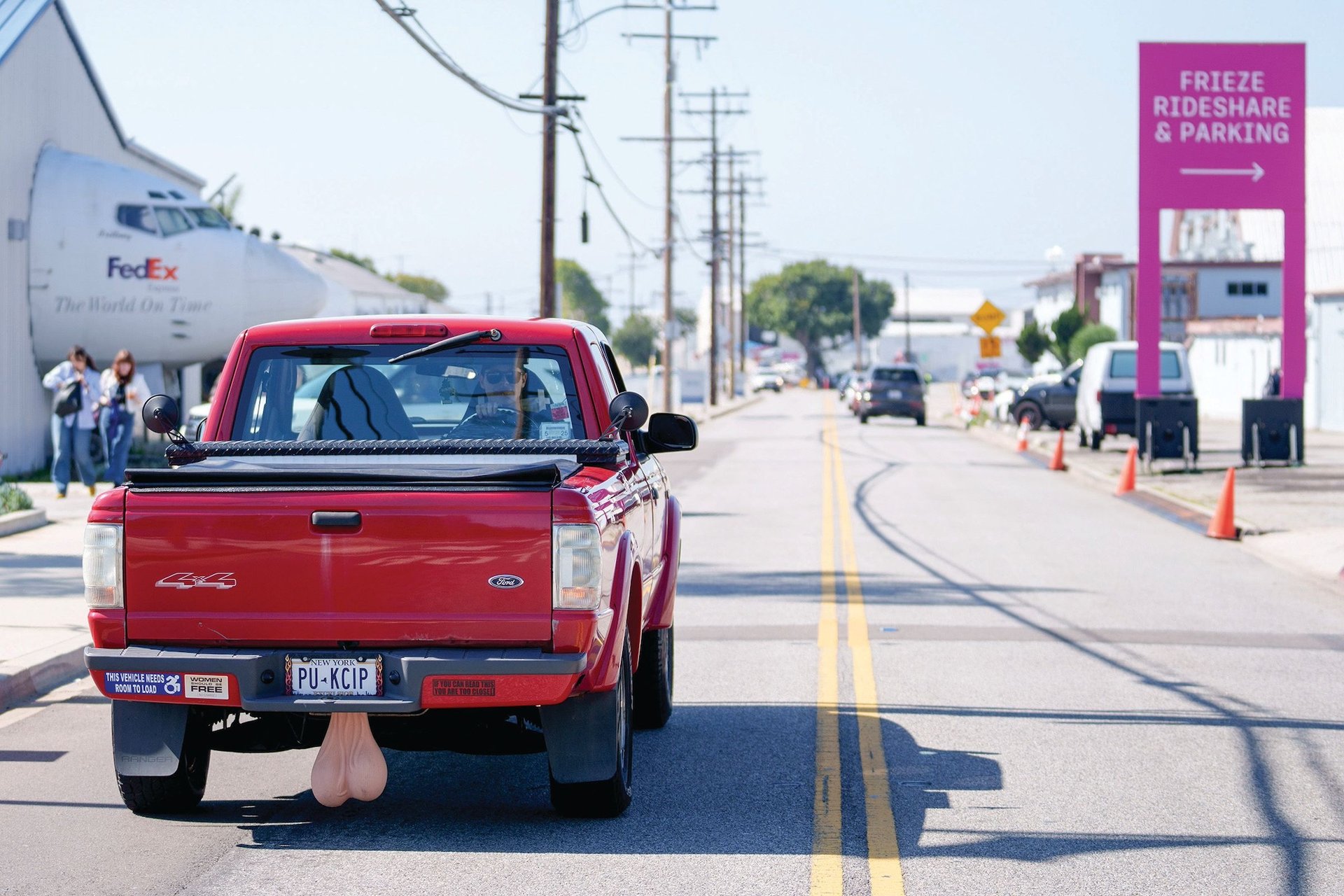
Pippa Garner’s Haulin’ Ass!, a 2003 Ford Ranger made to look like it’s driving backwards and sporting an impressive pair of truck nuts, was a fixture at Frieze Los Angeles 2024 Eric Thayer
In 1974, Esquire financially backed and published documentation of Garner’s career breakthrough, Backwards Car, a used Chevrolet she doctored to look like it was driving the wrong way. The project was met with immediate public fascination and catalysed the artist’s next phase as an object-hacker, intervening in the mechanical functions of mundane objects to bizarre and nonsensical effect. (A related project, Haulin’ Ass! from 2023, was part of the public programming at last year's edition of Frieze Los Angeles.)
Her 1982 Better Living Catalogue, published prior to her gender transition in the mid-80s, put her on the map as an arbiter of oddities, ultimately leading to a guest appearance on The Tonight Show Starring Johnny Carson in which she wore a cropped suit jacket to debut a variety of useless, tongue-in-cheek gadgets, like a palm-frond umbrella, a baseball cap for two and high-heeled roller skates. Better Living made light of the absurdities of commercialism through tinkering interventions, a logic she applied to her own body later that decade through the use of black-market hormones.
“I remember looking in the mirror one day—this was in the 1980s—and I thought, ‘Hey, I’m an object, too. I’m just another appliance,'" she was quoted recalling in the press release for a 2023 exhibition at White Columns in New York.
She meant it: after a bike collision with a car in 2000, her left leg was surgically reconstructed. She had it tattooed from the knee down with a woodgrain pattern, one of several ink-forward modifications she underwent to complement more classic gender-affirming surgeries. Her anarchic, fluid relationship with gender presentation transformed her body into one of the many tools she used for self-expression. “I would have had the same attitude toward whatever body I got,” Garner told Frieze in 2023.
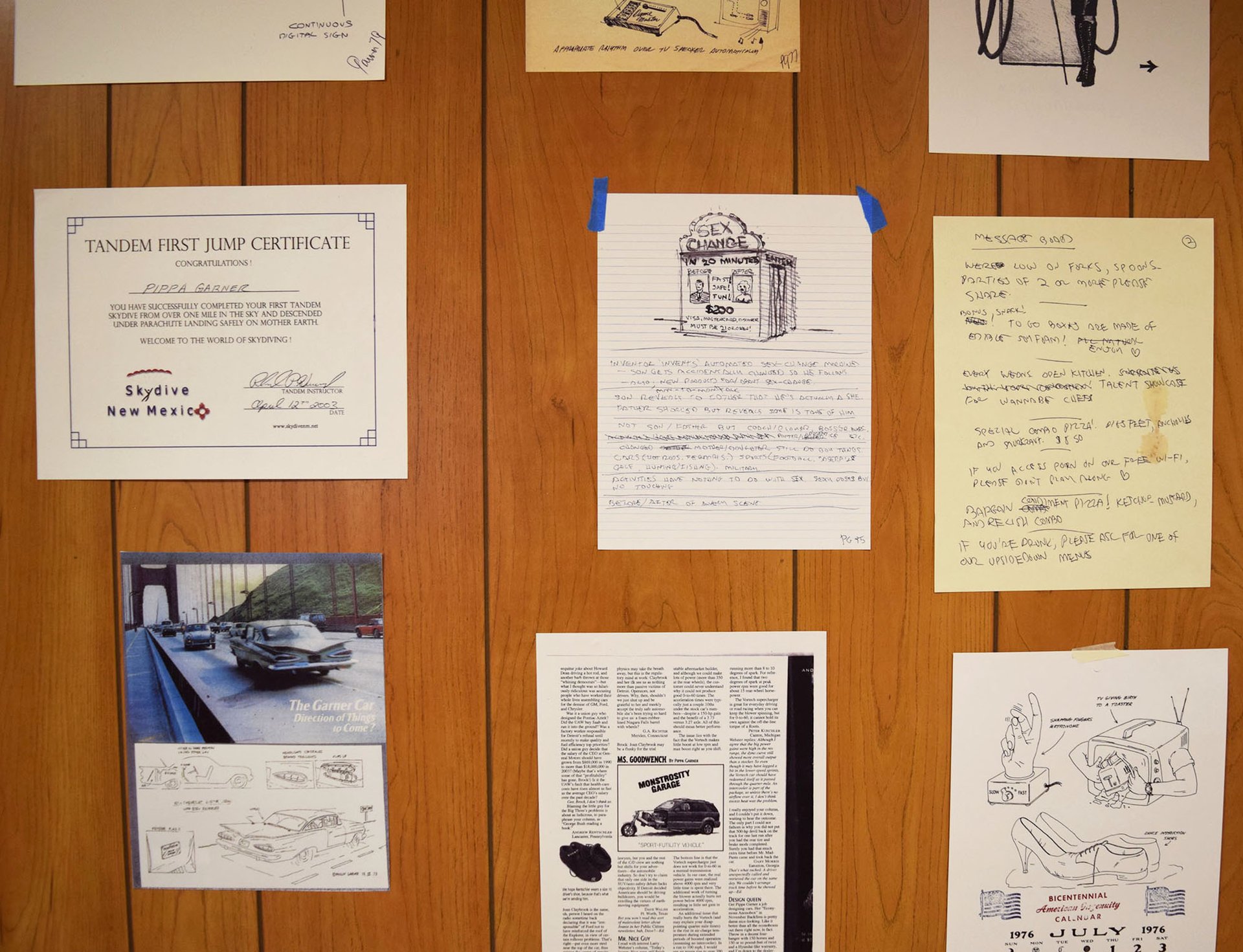
Detail of Pippa Garner's Inventor's Office (2021–24) at the 2024 Whitney Biennial Benjamin Sutton
While Garner’s artistic production, especially of graphite drawings and graphic tees, never slowed, she rarely exhibited between 1986 and 2014, bursting back into popular consciousness with a presentation at New York’s Spring Break art fair in 2015. A spate of highly regarded solo shows followed, spurring renewed interest in her creative persona and output. This culminated in the inclusion of her installation Inventor’s Office (2021-24) in the Whitney Museum of American Art’s 2024 Biennial in New York. Garner also participated in the Hammer Museum’s Made in LA biennial in 2023; the exhibition at White Columns also traveled to Germany, Switzerland and France. Her return to the spotlight was accompanied by the publication of two monographs, Act Like You Know Me (2023) and Pippa Garner: $ell Your $elf (2024).
While Garner’s public life was defined by forthrightness and connections with the likes of Chris Burden, Ed Ruscha, and avant-garde collective Ant Farm, her private life proved more inscrutable. She had a younger sister from whom she was estranged. Her marriage to Nancy Reese, a painter who was Garner’s conduit to the late 1970s art scene, ended in divorce.
Garner’s holistic creative outlook—less narrowly political than personally resistant to uniformity—reached every aspect of her practice, including her interviews. “I’m just having a good time”, she told Frieze in 2023. “There’s so much out there, it’s hard to know, but I did what I could with what I had.”


